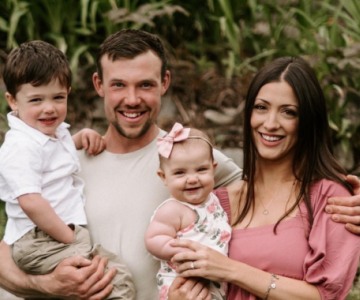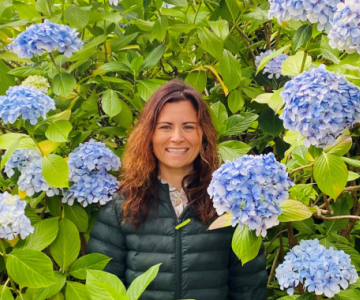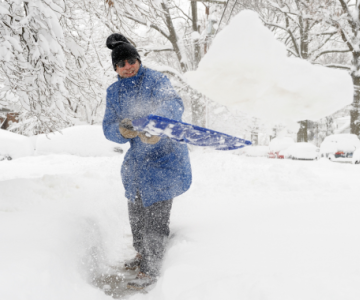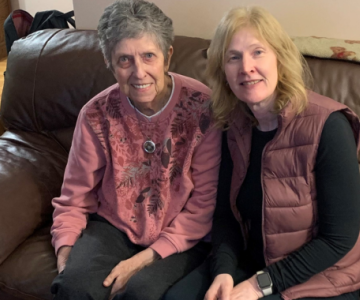Breadcrumb
Explore Stories
Health & Wellness
Five teens have been selected as winners for the 2023 Take a Breath: Teen Voices on Tobacco, Cannabis and Vaping poster contest. Youth in grades eight to 12 living in the Interior Health region were invited to participate in the contest. Teen judges on the IH Teen Advisory Council evaluated and scored each poster based on a specific set of criteria.
The intent of the poster contest was to spark meaningful conversations about teen tobacco, cannabis and vapour product use, and their impacts on teens’ health, environment and their communities. Teens who identify as Indigenous were also invited to reflect and share on the differences between ceremonial and commercial tobacco use.
“It’s exciting to see this level of interest in participating in this contest. We do appreciate the attention that encourages us to work even harder to spread the word about the impacts of smoking and vaping on our health,” says Dr. Fatemeh Sabet, medical health officer at Interior Health. “By collaborating with youth, we continue to learn how to engage younger generations in a more meaningful way in order to minimize the risks of hazards, like vaping, in our communities.”
Health & Wellness
When Erin’s teenage son Sam hurt his wrist at the skatepark, it didn’t seem that serious at first. However, by the evening his wrist was very swollen and painful. Erin started second-guessing her initial assessment and felt they should have her son’s injury checked.
When a family doctor or walk-in clinic isn’t available, or if it’s after hours or the weekend, we often turn to hospital emergency departments for help.
But instead of going to the local emergency department that night, however, Erin took her son to the Penticton Urgent and Primary Care Centre (UPCC). The primary care team’s physician provided a requisition for an X-ray to be done at the hospital, and the team’s physiotherapist wrapped Sam’s wrist and provided a sling.
“It all turned out well. It wasn’t broken or fractured,” says Erin. “And it was a relief to get into the clinic that evening and have someone look at Sam’s wrist quickly.”
Community & Culture
Welcome to the Meet Your Recruiter series, where we bring you closer to the dedicated professionals behind Interior Health's recruitment team. In this series, you'll have the opportunity to get to know the recruiters who play a vital role in attracting and selecting talented individuals to join our dynamic health-care team.
Discover their passions, expertise and invaluable insights as they share their experiences and shed light on the exciting opportunities that await you within Interior Health. As one of the largest health-care authorities in B.C., we are committed to providing exceptional care to the communities we serve. These are the people who help us fulfill this commitment.
Health & Wellness
Caring for someone with dementia can spark a range of emotions – and these will change over time. Everyone’s dementia journey is different: some people will live long and fulfilling lives at home. Others may decline quickly and will need specialized care in the community.
In our previous story, we talked about how dementia is diagnosed, and what happens next. Here, we explore the various care options for those with dementia and their caregivers.
Community & Culture
Name: Jenna Hunter (she/her/hers)Job Title: Interim Regional Knowledge Coordinator/Internationally Educated Nurses – Clinical EducationYears of Service: 18Worksite: Vernon Jubilee HospitalCommunity: Vernon Ancestral Territory: Syilx NationFavourite Quote / Advice to live by: "Tell me, what is it you plan to do with your one wild and precious life?" - Mary Oliver
Born in the Vernon Jubilee Hospital (VJH), Jenna Hunter’s career and life have come full circle. After becoming a registered nurse (RN), Jenna would spend her time caring for patients in the same hospital that she was born, before becoming a clinical educator.
Jenna is grateful to all the people along the way who believed in her and took the time to encourage her.
When she’s not at work, you can find her spending time with her family, travelling and enjoying the fresh air with a book in hand. She also adds that she’s always up for anything as long as it’s an adventure.
Community & Culture
Name: Marie Vajda (she/her/hers)Job Title: Administrative Services ManagerYears of Service: 6Worksite: Penticton Health Centre Community: South Okanagan Ancestral Territory: SyilxFavourite Quote / Advice to live by: “Don't stress. Take it one email, one request and one day at a time.” And “sorry—my crystal ball is broken!”
After working in retail supervision and management for 10 years, Marie found herself at a junction when the company she was working for closed.
After going back to school, she found a job as a medical office assistant in a busy North Vancouver office. When her husband’s work took them to Prince George, she found a job as a medical software tester and trainer.
Six years later, in 2017, the Vadja family moved to Penticton, where Marie found a position in administration at the Penticton Health Centre. What started out as a casual role became a permanent position. She was promoted to supervisor, then manager, administrative services.
Health & Wellness
As the snow falls, and we prepare to enjoy our favorite winter activities, it is important to remain prepared and stay protected from risky weather situations. There's always potential for freezing cold temperatures in the winter. Here's what you can do to ensure you and your family remain safe and healthy.
Health & Wellness
After a mild winter throughout the B.C. Interior, the snow we’ve been anticipating has finally arrived.
It’s an exciting time for ski and snowboard enthusiasts. It’s also a time when we pull out the shovels to clear our driveways, although hopefully not too often.
Shovelling snow can be an inconvenience, but may also cause injury, mainly to your back and shoulders.
However, injuries can be prevented with the right approach.
Health & Wellness
If you find yourself forgetting names, misplacing keys or not remembering your granddaughter's birthday, it's natural to feel worried it could be a sign of dementia. As we explored in our previous story, memory loss and difficulties often come with age, but don't always mean you're developing dementia.
In this story, we explore how dementia is diagnosed, and what happens after a diagnosis, both for the individual with dementia and their family.
-
Load More
Showing 306 of 832
Sign up for email updates
Receive news, alerts, public service announcements and articles right to your inbox.










